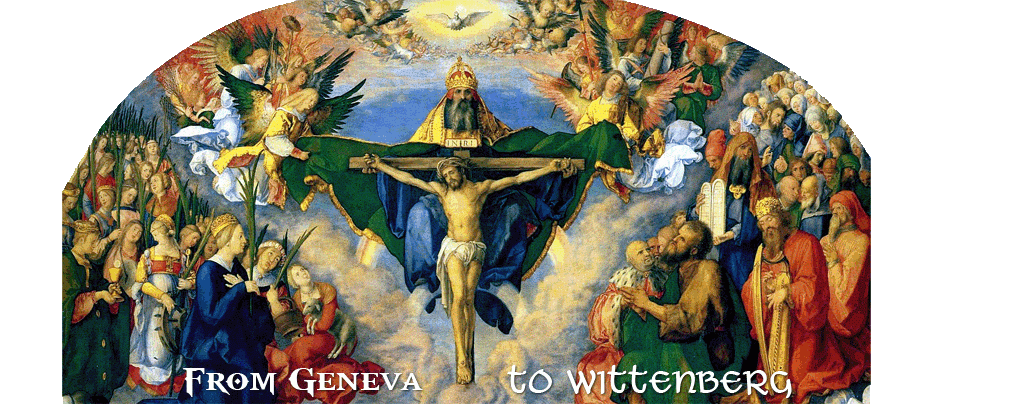Directly Proportional Sacramentology
So, to clarify what I have written, I am going to call on Hermann Sasse. He explains it better than me. I quote from Sasse's stellar work on the Marburg Colloquy, entitled This is My Body.
"How then, is it to be explained that he [Zwingli] was prepared to recognize Luther as a brother in the faith, in spite of what he regarded as Luther's grave error? The answer is that for him the Sacrament. and the doctrine on the Sacrament, did not belong to those essentials of the Christian faith concerning which there must be unity within the church. In contradistinction to Luther, the understanding of the Gospel on which there must be unanimity is independent of the understanding of the Lord's Supper and of the Sacraments in general. The Sacrament for Zwingli is not part and parcel of the Gospel; it is an ordinance of Christ, to be performed by Christians. This performance may have some effect on the soul of the faithful, insofar as the 'sign' makes the Word of the Gospel clearer. But the Sacraments can never be means of grace in the strict sense. They only signify the grace which has been given without them, as he puts it Art. 7 of his Fidei Ratio:
'I believe, indeed, I know, that all the sacraments are so far from conferring grace that they do not even convey or distribute it.'
That the Sacrament is also a sign has never been denied by Luther and the Lutheran church, as it is the conviction also of Roman doctrine. The question is only whether, according to Scripture, it is not more.
Here lies the deepest reason for the differing attitudes of Luther and Zwingli, not only toward the Sacrament as such, but also toward the doctrine, that is, the understanding of the Sacrament. If the Sacrament, though performed by man, is an act of God, and if this act is more than a sign, namely, and instrument by which God gives something, then the denial of this character of the Sacrament is ...nothing less than a destruction of the Sacrament. The Sacrament is either a means by which God gives His grace, or it is no Sacrament at all - at least, not in the sense in which the church for 1500 years, since the days of the apostles, had understood the Sacrament. Nothing can conceal the difference between churches for which the Sacraments are instruments of divine grace and churches which deny this." (Hermann Sasse, This is My Body, Adelaide: Lutheran Publishing House, p. 228-229)
As I posited in the aforementioned blog, one's view of the Sacraments determines their importance. Hence, Zwingli could unite with Luther despite their differing views on the Sacrament of the Altar, but Luther could not. For Zwingli, it was not Gospel and was secondary in a sense. For Luther, the Lord's Supper is pure Gospel and to misunderstand it is to have a misunderstanding somewhere along the line in your understanding of the Gospel. Therefore, Luther and Zwingli left Marburg as opponents on some level and not as united brothers.
+Pax+
+Pax+

No comments:
Post a Comment